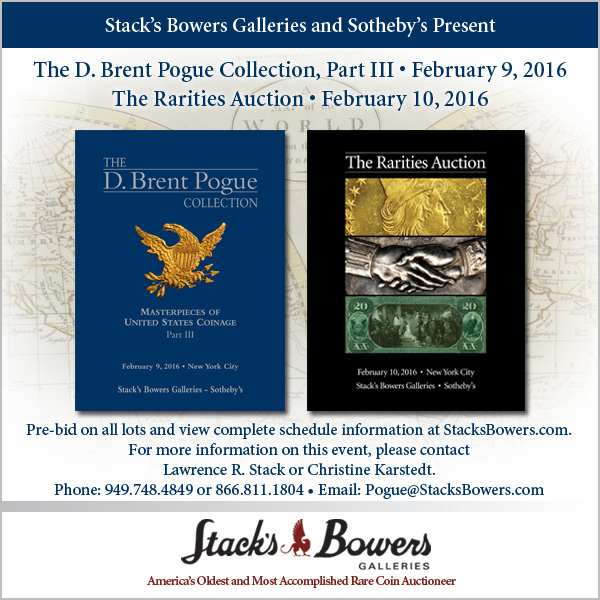
PREV ARTICLE
NEXT ARTICLE
FULL ISSUE
PREV FULL ISSUE
MORE THOUGHTS ON RARITY RATINGS
Bill Eckberg submitted these thoughts on Rarity Ratings in response to Jonathan Brecher's question last week. -Editor
With respect to “Thoughts on Rarity Ratings,” their reliability varies from series to series. Probably no series have been as closely studied as large and half cents. The rarity ratings for those have been determined by counting large, demonstrably random samples of unattributed coins and doing statistical analyses of the results. That works well for coins of which there are at least 25 or so known. For coins rarer than that, if it is a series well-studied like large cents and half cents, the rarity ratings are based on the number of reliably known examples. In any case, it has nothing at all to do with how many have been auctioned or slabbed in X years. If someone touts a coin as rare because relatively few have been slabbed, run - do not walk - away. There are MANY coins that have not been slabbed, many that have been slabbed multiple times, and many that have been slabbed but not attributed. (Not to mention the fakes that have been slabbed.) If you’re talking about series that have NOT been so exhaustively studied, which would be most everything else, the fact that 20 or fewer are known does not in any way mean that 20 or fewer actually exist. You are probably safe in betting that many hundreds do not exist, but don’t think your coin is necessarily as rare as the seller is presenting it to be. Also, ALL ratings have to be taken with a grain of salt. Given the system Brecher used, if you have a good, reliable study that shows that about 75 are known of a variety, is it actually R-5 or R-6? There is no way to know. And if someone tells you a coin is R-5, does that mean there are only about 75 so it’s hard to find, or there are about 200, so it’s much easier to find? Again, there is no way to know. It’s important not to take ANY rarity rating too seriously. Morten Eske Mortensen writes: The topics of rarity-ratings, and the ways that professionals cheat the buyers with false rarity ratings during more than 20 years have been the topic of the publishing house ”Grelbers Forlag” in Copenhagen in more than 200 critical and satirical articles. Some of the 200+ editions have been translated into English language: Re. Støttebetaling for "Månedens Kommentar". (http://grelbersforlag.dk/info/abonnementMaanedensKommentar.htm) To read the earlier E-Sylum article, see:

Wayne Homren, Editor The Numismatic Bibliomania Society is a non-profit organization promoting numismatic literature. See our web site at coinbooks.org. To submit items for publication in The E-Sylum, write to the Editor at this address: whomren@gmail.com To subscribe go to: https://my.binhost.com/lists/listinfo/esylum All Rights Reserved. NBS Home Page Contact the NBS webmaster 
|